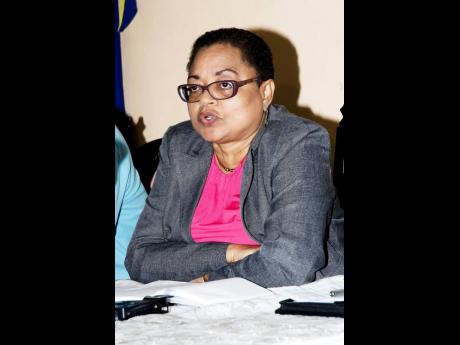$4b tax cheats - Multinationals under microscope for offshoring wealth
Jamaica’s public service is being robbed of at least $4 billion yearly because of elaborate tax avoidance and tax-evasion schemes used by some companies, a new report has suggested.
Fingers are being pointed particularly at multinational corporations that funnel huge profits back to their host countries but pay very little in the countries they operate.
The report published by Public Service International stated that approximately US$20 million in yearly tax losses can be directly attributed to multinational corporations, while US$9 million can be pinned on private individuals.
“They are siphoning off money that should be employed in our education and health sectors, for example, and are funnelling it into offshore tax havens,” Helene Davis Whyte, trade unionist and general secretary of the Jamaica Association of Local Government Officers, said during a briefing on Wednesday.
The report stated that approximately 3,300 new firefighters, or 3,000 public inspectors, or 3,000 community health aids could have been employed in the public service had that money been netted by the Government.
“It is denying Jamaican authorities the ability to be able to deliver quality public services through the employment of adequate numbers of officials and workers in the public sector,” she further stated.
The report names the Cayman Islands, United Kingdom, The Netherlands, Luxembourg, and the United States as the biggest contributors to other countries’ tax losses.
Liz Nelson, a director of the Tax Justice Network, said the harm meted out by Jamaica to other countries through the facilitation of tax abuse was “negligible”.
“But the self-inflected harm on the people of Jamaica is a different matter: 5.6 per cent of the health budget and 2.23 per cent of the education budget is the suffered loss, equivalent to over 2,000 nurses’ annual salary in Jamaica,” Nelson underscored.
She acknowledged that the report could not name the guilty multinationals blamed for offshoring profits and avoiding taxes but was confident in the estimates.
To fix the problem, Nelson has suggested that Jamaican authorities should have a register for companies to show where profits are registered. That information, she said, could be made public.
“This is crucial to understanding who is actually shifting profits,” she said.
The JALGO general secretary said her organisation supports a recommendation for governments across the world to place a tax on excess profits and a tax on wealth to help fund the coronavirus response.
Dr Andrea Sutherland, economist and dean of the College of Business and Management at the University of Technology, believes that companies may not be operating illegally and that Jamaica’s tax code will ultimately guide compliance.
Sutherland cautioned against jumping to conclusions that companies are engaging in evasion, saying that they could be “legally avoiding taxes”.
“There is nothing wrong with that,” Sutherland told The Gleaner on Wednesday.
“Tax evasion is a crime, but if you have a tax code that gives you the ability to avoid tax, you are not doing anything wrong. You may look at it from the ethical standpoint ... but they are not doing anything illegal,” she said, highlighting that it was the job of the Government to plug systemic loopholes.

